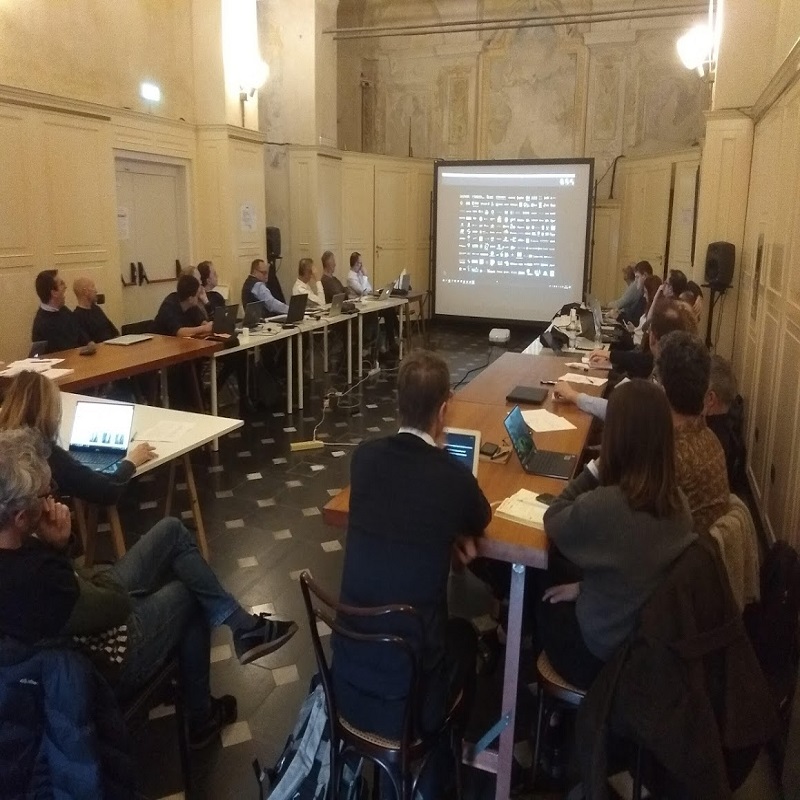|
|
Short Description: The Kick-off meeting was the first occasion for the consortium members to meet and get to know better each other and, more specifically, to share visions, objectives, and research guidelines and methodologies in a perspective of the joint research activities planned in the project.
|
|
Long Description: The first session included presentation of each organization, focusing on a brief overview and of its proposed role in the project. The second session focused on the activities in each work package, focusing on the details of year 1 activities. Each work package leader chaired its WP, supported by Task leaders and finally with a resume/discussion. The third (late afternoon, day 1) and fourth (first session, day 2) sessions focused on discussions on (i) theoretical issues and methodology, (ii) scenarios and societal objectives, (iii) technological platform. A concluding session led to the wrap-up of decisions, and on the definition of upcoming disseminarion and exploitation activites and management. From the theoretical perspective, the discussion emphasized the differences and complementarities of the research objectives from different perspectives: from cognitive and movement neuroscience (understanding brain functions and brain-behaviour interactions), to computing (computational models and algorithms to simulate cognitive, emotional, and social tasks inspired by multiple temporal scales and cognitive neuroscience), to technological objectives (future technological infrastructures for movement analysis). Background knowledge and proposals on research directions from each partner included approaches to individual and joint movement and action segmentation, analysis, prediction and anticipation. The discussion on state of the art technology infrastructure and on perspectives of novel directions was chaired by Qualisys; the discussion included perspectives towards markerless technologies, on how to design the project technology platform based on multiple temporal scales, and on concrete instances related to the 3 project scenarios. Scenarios were finally discussed, and some relevant refinements emerged, including the focus to psychiatric use cases (IIT), and to include movement and joint actions in newborn infants (mother-infant, mother-therapist-infant). The Gaslini Children Hospital Unit on cognitive and motoric rehabilitation participated, members of the ARIEL-Augmented Rehabilitation Joint Lab with University of Genoa participated and contributed to the discussion on scenarios refinement (Head of the Unit Dr Paolo Moretti and his colleagues). |
|

